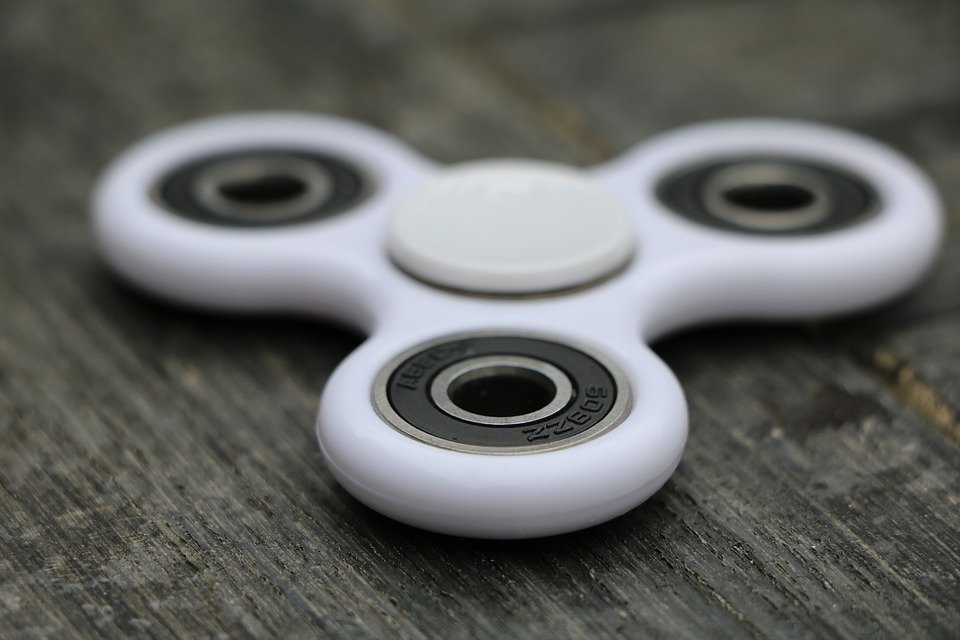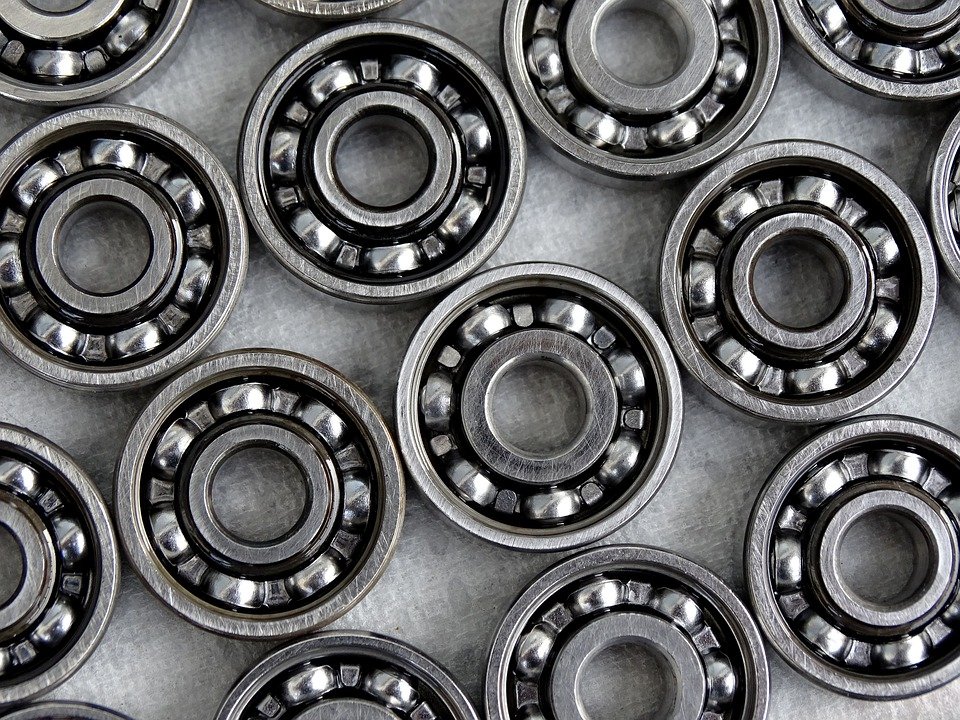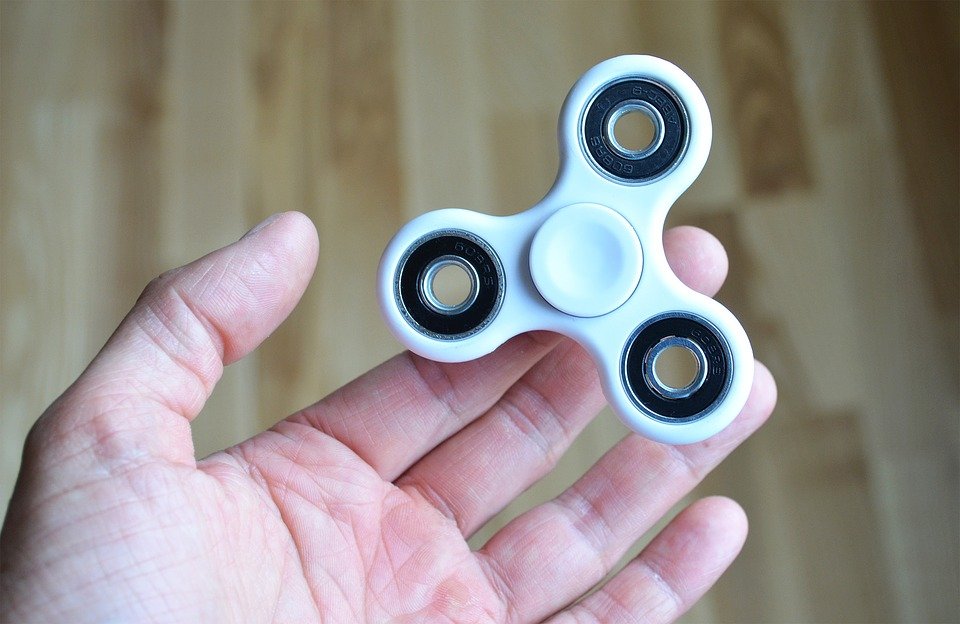Over the last year Fidget Spinners have blown up in the market. It's particularly popular amongst the younger generation and have gotten so popular they have become a problem that schools have began banning them. They are known for spinning for minutes on end without slowing down. What is the science behind them and how are they capable of spinning for so long? The answer is due to the Physics behind them.

1 - What is a Fidget Spinner made of?
The Spinner is comprised of 3 bearings (1 on each arm), a ball bearing in the centre, and a piece of plastic holding it all together. Inside the bearings are balls which are held in place, in contact with an inner ring and an outer ring. We will talk about how these work in a moment. The image below shows you the "skeleton" of these bearings.

2 - How does a Fidget Spinner work?
Now we know what makes a Fidget Spinner, we can talk about how these bearings work together to make the final product. Inside a bearing we have a set of metal balls held in place by a bracket (please refer to image above), with an inner metal ring and an outer metal ring. These rings are only in contact with the balls and can slide freely over them; note it is not the balls that move in a bearing it is the rings.
Once you give a Fidget Spinner a spin; all the rings of the 3 bearings on the arms start sliding around in the direction of the push. This causes a force to act in that direction and so the plastic frame is forced to move in that direction. This is where the bearing in the centre comes in - its rings also start moving in that direction allowing the whole system to spin!
Because of the sliding of all these rings on the bearings and the huge force caused, the arms begin spinning very rapidly reaching high speeds with no detectable acceleration, but this still does not answer our question; how do these toys spin for so long?

3 - The Physics behind a Fidget Spinner
Physics has a law called the law of conservation of angular momentum. Mouthful I know, but has a very simple explanation. If something is spinning in a circle, nothing will stop it until an external force intervenes and stops it. In a Fidget Spinner's case this external force is mostly friction.
The job of these bearings is to reduce friction as much as possible. Remember when I said only the balls are touching the rings? These balls cannot move but can rotate about their axis. Since the rings are only in contact with the balls, sliding these rings would have very little friction. This is due to the balls rotating about their axis as the rings slide over them. This is also why the balls and rings in a bearing are metal; to further reduce friction.
So when you give a Fidget Spinner a good spin, due to very minimal friction between the rings and balls in each bearing, it takes a while for this kinetic energy you give it to dissipate hence why they spin for so long.
Any questions, leave them below and I will do my best to answer them for you!
Until next time, take care Mystifact